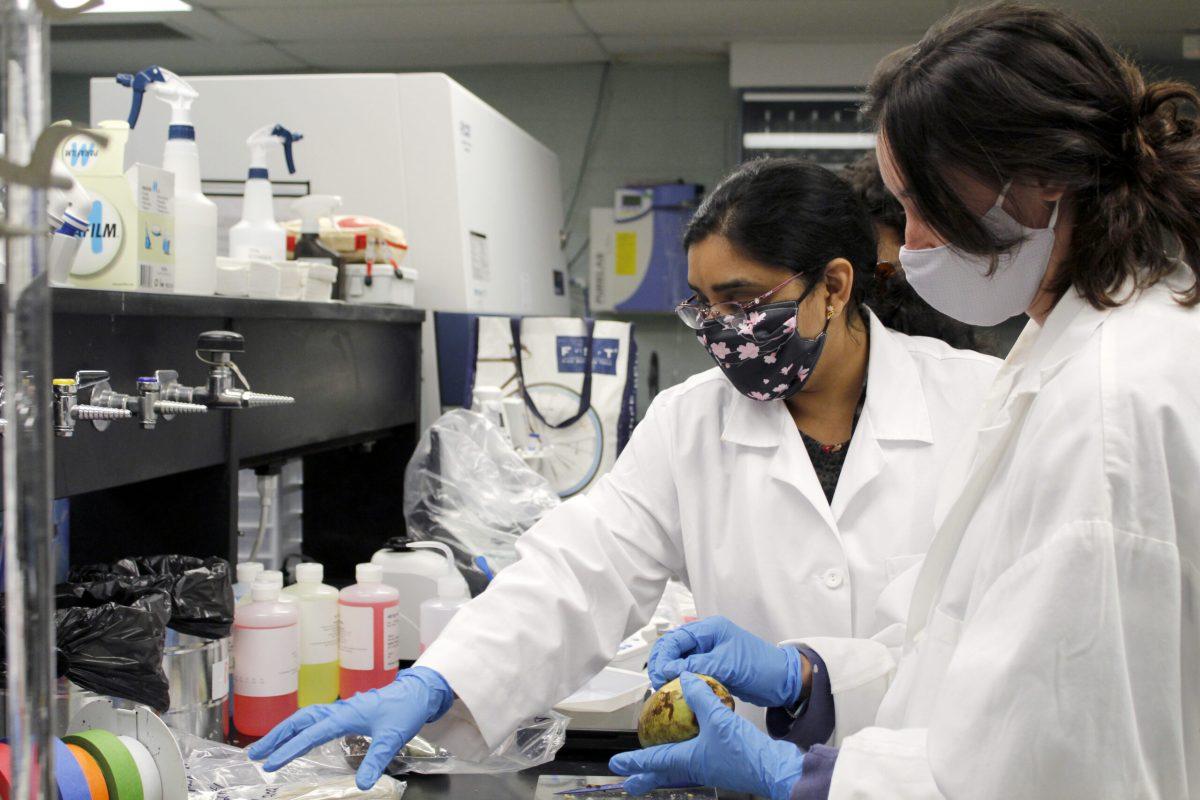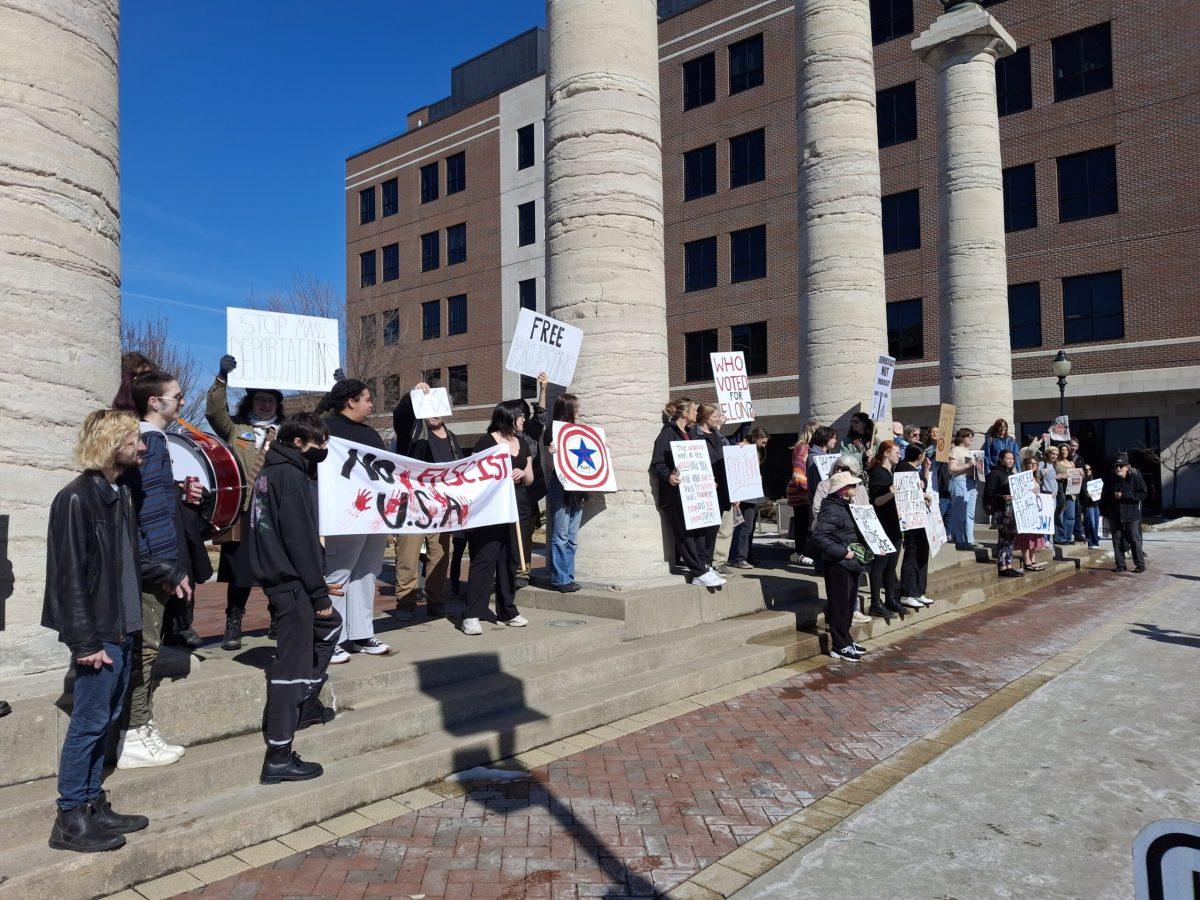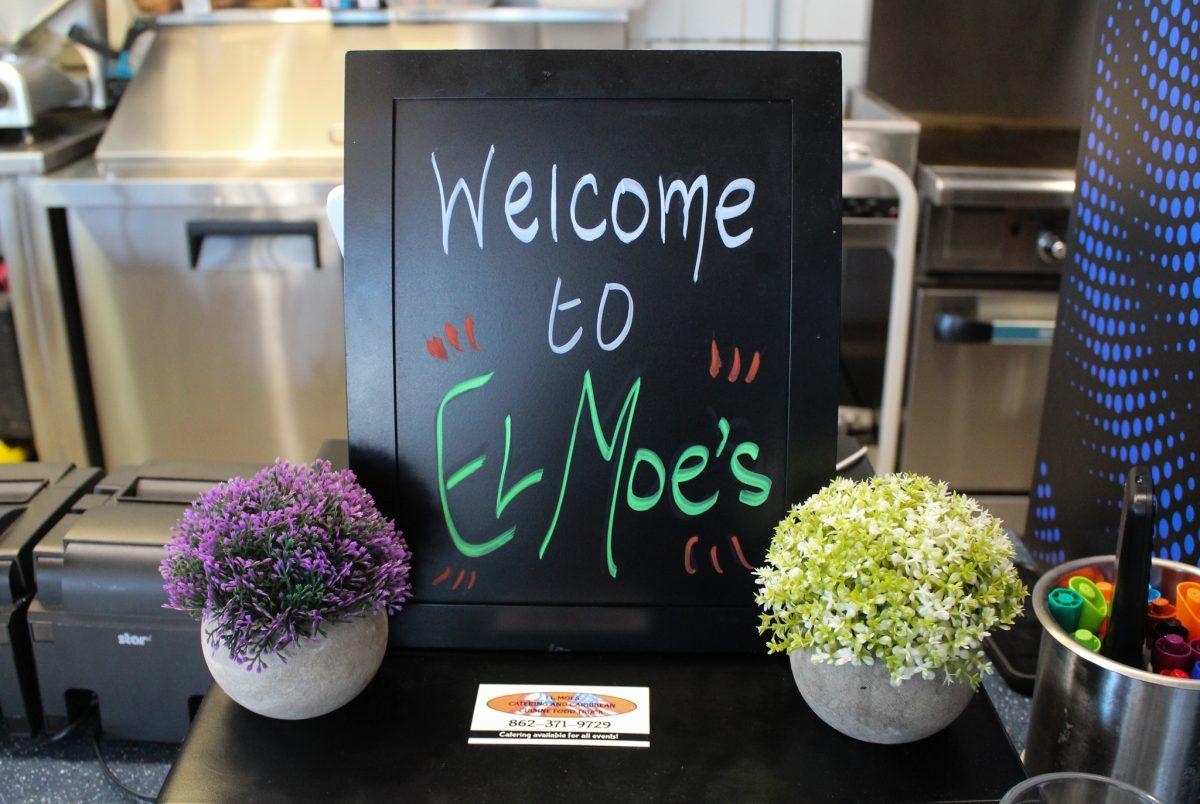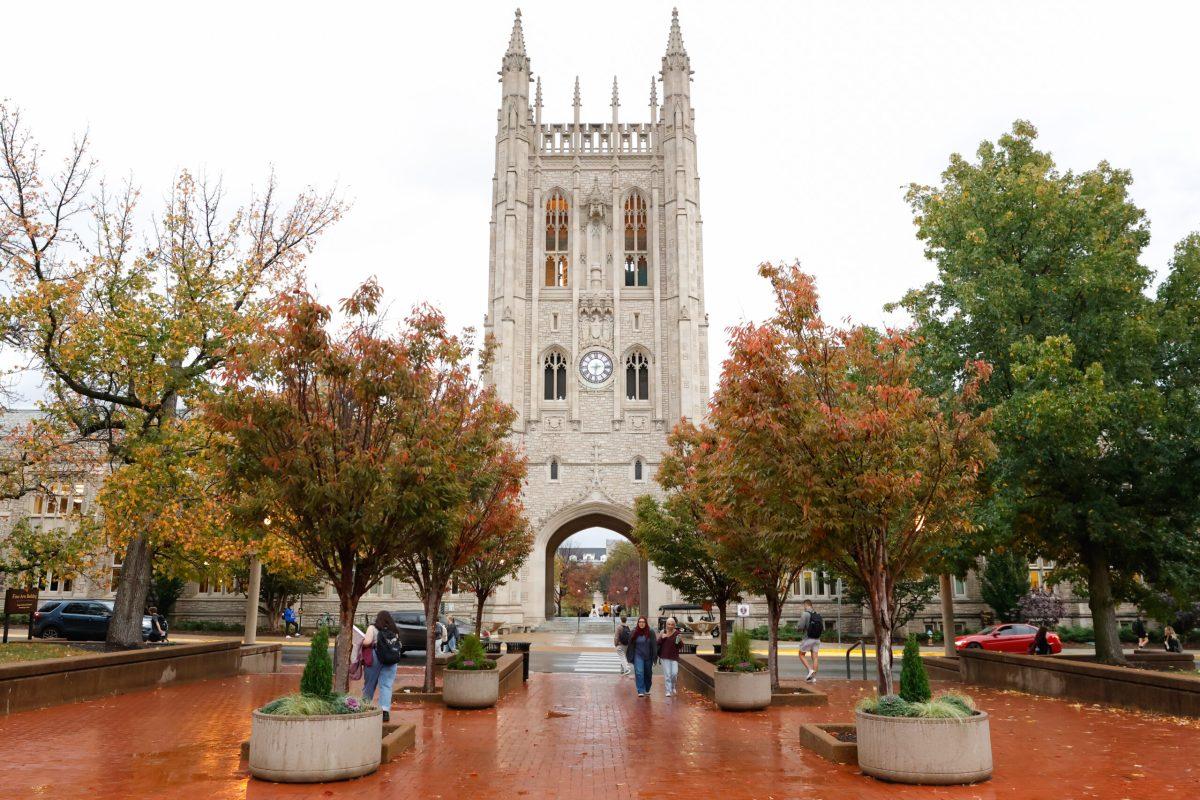Two MU professors are studying how to combat food insecurity within Missouri and worldwide, a task they say is important heading into a future facing climate change.
Kiruba Krishnaswamy, an assistant professor in the Department of Biomedical, Biological and Chemical Engineering. She also has a joint appointment in the College of Agriculture, Food and Natural Resources, where she studies how to improve food in its post-production stage by working on aspects like increasing a food’s nutritional quality or shelf life.
Krishnaswamy joined the College of Engineering in 2018. Soon after, she applied for a grant, and once it was accepted, she began her research in her Food Engineering and Sustainable Technologies, or FEAST, Lab.
Krishnaswamy’s research is composed of three areas: sustainable food systems engineering, fortifying foods with vitamins and minerals and efficiently delivering foods through proper delivery systems.
The FEAST Lab works on several projects at once, such as adding nutritional value to Greek yogurt and processing ancient grains, as well as a current project on fortifying soy foods with vitamin B12. Krishnaswamy said this project will help combat food insecurity both in the U.S. and abroad.
“Initially, when I started my research, it was all technical, like applying engineering principles and optimization and so on,” Krishnaswamy said. “But then as I progress, you see the real impact after you develop the product [and] people are consuming it.”
Her lab focuses on how food waste and food loss impact vulnerable communities, including women and children, as well as communities hit especially hard by COVID-19, like Indigenous and rural communities.
Krishnaswamy said she hopes her research will also help people pay more attention to hidden hunger, a lack of nutrition which is not readily visible, such as childhood obesity. It is an aspect of food insecurity common in the U.S. and affects over 2 billion people worldwide.
Noelx Aloysius, an assistant professor in the Department of Biomedical, Biological and Chemical Engineering, works on the other side of Krishnaswamy’s research. He examines food production difficulties that can result from changing water sources and weather patterns.
Aloysius also studies these communities’ relationships to food systems, specifically challenges they may face when water quantity and quality change.
He has studied several regions in both the U.S. and Central and West Africa. In the U.S., he focuses on the Mississippi River Basin, specifically the Missouri region, and its water quality and quantity throughout the year.
Missouri is located in the middle of three large river beds, with the Missouri River on the northwest side and middle of the state and the Mississippi River to the east. The state is located downstream of these river systems, so Aloysius said upstream states’ water usage is incredibly important to Missouri.
“If they have a lot of agricultural activities where there isn’t much conservation effort, that’s going to affect the quality of water that comes into the whole state,” Aloysius said.
One of Aloysius’ current research projects studies how to best repair several northern Missouri watersheds that have been identified as impaired. Aloysius’ team must strategically replant trees and other vegetation along impaired stream areas to trap sediments so they won’t get in the water source and decrease the water quality.
The Environmental Protection Agency provides funding through the Clean Water Act to develop this project as part of Missouri’s watershed conservation program. The plan must be executed in three stages: identifying impaired streams, implementing the plan and analyzing the plan’s effectiveness.
Bailey Stover, a sophomore journalism major, does communication and media work to share information with the public about this project and several others Aloysius and his researchers are currently working on.
Stover said the research team’s work helps highlight the effects that today’s actions in the agriculture industry will have on the future of climate change and food insecurity.
“We need the long-term studies to show that this isn’t something that’s just happening now,” Stover said. “It’s going to keep happening, and we have to be able to take the necessary steps to prevent whatever future is going to come if we don’t make changes.”
Both Krishnaswamy and Aloysius said their combined research will revolutionize how people produce and value food and water. Each said they hope their work will alleviate some of the stressors people in Missouri and worldwide face as food insecurity is projected to worsen due to climate change.
Aloysius referenced recent extreme weather events in Missouri, such as prolonged droughts followed by heavy periods of rain and flash flooding this past summer, that he said demonstrates the importance of their research.
Although Krishnaswamy and Aloysius believe their research can fight food insecurity caused in part by climate change, they each said they want people to remember that their individual choices can also help combat this challenge.
“Everyone is part of the food system,” Krishnaswamy said. “So if you want to create more sustainable food systems, it’s in your decisions that you make. It starts from home. That’s the mindset that we need to develop.”
News writer Teagan King came on the Maneater Digest podcast to talk about her experience writing this article and went into a bit further depth about what she learned writing this article. Give it a listen!
Edited by Namratha Prasad | [email protected]













